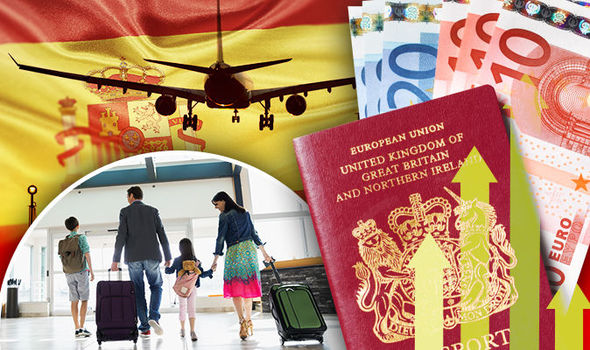Spain Cracks Down: British Tourists Face Stricter Entry Rules, Higher Taxes, and Fines Up to £2,517
Friday, October 24, 2025 @ 9:41 PM
Spain, a consistently popular destination for British holidaymakers, is implementing a comprehensive series of new rules and regulations designed to curb overtourism and anti-social behaviour. Visitors are now advised to familiarise themselves with changes ranging from stricter border controls to new local restrictions and hefty fines, with some violations on beaches carrying a penalty of up to £2,517.

Stricter Entry and Exit System (EES)
The European Union has begun rolling out its new Entry/Exit System (EES) in phases, which will change the border experience for non-EU visitors, including those from the UK.
Under the new system, which began implementation in October 2025 at border crossings:
-
Biometric Data: Tourists will be required to provide fingerprints and photographs upon arrival and departure.
-
Schengen Code Questions: Border officials will ask visitors a standard set of questions, including the purpose of travel, proof of sufficient funds for the stay, and details of accommodation.
Higher Tourist Taxes
Several popular Spanish destinations are raising their local tourist taxes to manage the cost of increased visitor numbers.
-
Balearic Islands (Mallorca, Ibiza, Menorca, Formentera): Overnight charges are set to rise, with guests in four and five-star hotels during peak summer months potentially paying significantly more per person per night. Cruise passengers will also see a sharp fee increase, with some charges going up by 200%.
-
Barcelona: The city's tourist tax is scheduled to double by the end of 2025, reaching a higher charge per person per night for those staying in top-tier hotels.
New Local Restrictions on Accommodation and Activities
In a direct response to local anti-tourism protests, several Spanish communities are introducing measures to protect local life and housing markets.
Strict Behavioural Rules and High Fines
Holidaymakers are warned that certain behaviours and items are now strictly prohibited in certain zones, resulting in steep financial penalties.
Alcohol Bans and Limits
-
Late-Night Ban: In areas of Majorca and Ibiza—including Llucmajor, Palma, Calvià (Magaluf), and Sant Antoni—a late-night alcohol ban prohibits the sale of drinks between 9:30 pm and 8 am. Drinking on public roads during these hours is also prohibited.
-
Six-Drink Cap: All-inclusive resorts in specific areas like Magaluf are enforcing a six-drink limit on alcoholic beverages as part of the package, generally restricting guests to three drinks at lunch and three at dinner.
Beach Prohibitions and Fines
Authorities in places like Gran Canaria have issued a comprehensive list of banned activities on beaches, promenades, and coastal zones. Fines for breaking these rules are categorised as:
|
Infraction Severity
|
Fine Range
|
|
Minor
|
£25 to £629
|
|
Serious
|
£630 to £1,258
|
|
Very Serious
|
Up to £2,517
|
Prohibited Beach Acts Include:
-
Smoking and Vaping.
-
Playing music in sunbathing areas.
-
Cooking on the beach.
-
Using large umbrellas, tents, or shelters.
-
Reserving spaces on sun decks or bathing platforms.
-
Collecting shells or rocks.
-
Fishing with a rod within 150 meters of bathing areas.
-
Public sexual activity.
-
Wasting water or washing with soap at public showers and foot-washing stations.